World faces famine, riots as a result of Russia invasion, says World Food Program chief David Beasley
The world faces famine, riots and more mass migration as a result of Russia’s Ukraine invasion, World Food Program head warns.
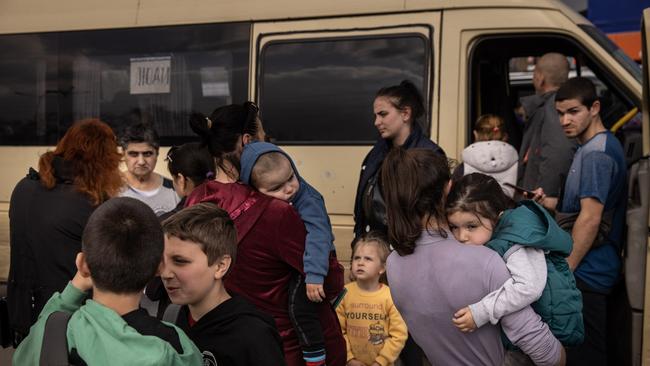
The global head of the World Food Program will warn G20 foreign ministers in Bali on Friday that the world faces famine, riots and more mass migration as a result of Russia’s invasion of Ukraine unless Moscow lifts the blockade on the Odessa ports that is preventing the export of millions of tonnes of wheat and grain.
WFP executive director David Beasley told The Australian in an exclusive interview ahead of the G20 talks that he had flown to Bali to “sound the alarm” among the world’s top 20 economies that the globe was on the brink of a fresh crisis.
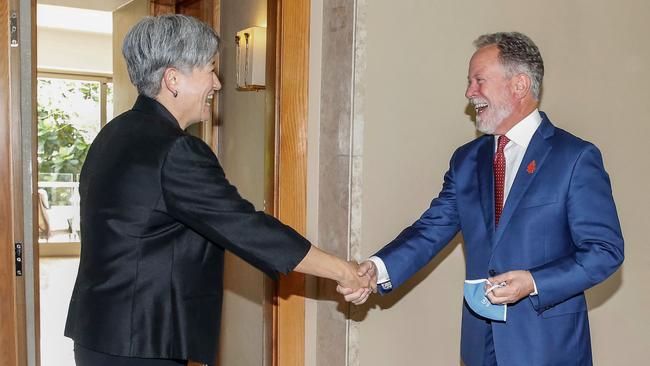
Mr Beasley will address the afternoon meeting of G20 foreign ministers at the invitation of Indonesian president Joko Widodo, who visited both Ukraine and Russia last week to try to broker a settlement that would end Russia’s blockade of Ukrainian grain exports amid fears of food shortages at home and across the developing world.
“I think in the last few weeks the world is awakening to the reality that we are facing a global food crisis and if we don’t open up the Odessa ports it’s a declaration of war on global food security,” Mr Beasley told The Australian following a drinks reception for delegates in an upscale Jimbaran hotel.
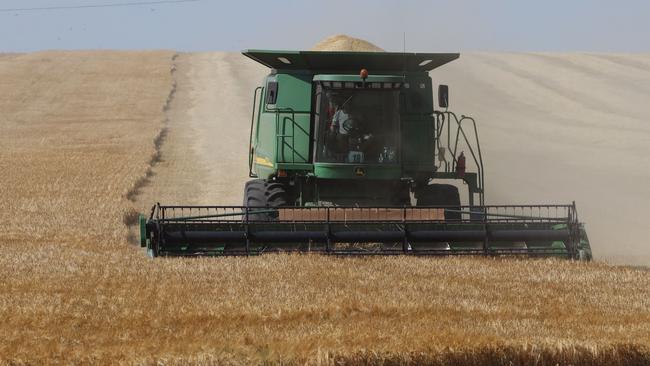
“It’s critical to open up those ports. It’s critical that we get fertilisers around the world. I do believe the leaders of the world are beginning to clearly understand how serious this problem is.
“If we don’t get on top of it you will see dozens of nations have riots, protests, and possibly destabilisation. There will be famine, destabilisation and mass migration. That’s why we have to act now.”
Mr Beasley will also warn that the mass protests and riots across 48 countries in 2007 and 2008 over the steep rise in food prices caused by the global financial crisis would “be nothing compared to what we are facing in the next eight to 12 months”.
The former farmer, author and governor of South Carolina said he had spoken to Russian foreign minister Sergey Lavrov since his arrival this week and he had “indicated to me that he would like to see this resolved”.
“It’s time for the powers that be to all sit at that table and let’s resolve at least the issues on fertilisers and food. This is why I have said very clearly to president Putin that regardless of your views on Ukraine we can’t afford to have famine in the rest of the world. And we need
to open up these ports.”
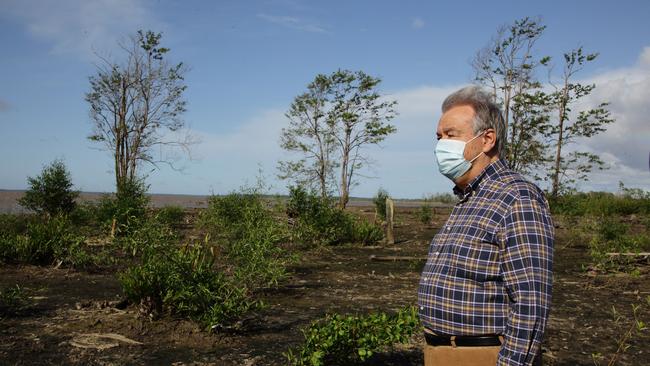
UN Secretary-general Antonio Guterres will also address the issue of a looming food crisis when he tells the morning G20 session from New York that there is a real risk of multiple famines this year and next as a result of the war in Ukraine which is “threatening to unleash social and economic devastation”.
Both men will urge the G20 nations to allow Ukraine food production to be exported to the world and Russian fertilisers to be brought back into global markets.
The two countries are among the world’s most important producers of agricultural commodities, with both ranking among the top three global exporters of wheat, barley, maize, rapeseed and rapeseed oil, sunflower seed and sunflower oil. Russia is also one of the world’s top exporters of fertilisers. Russian foreign minister Lavrov is also expected to come under intense pressure on Friday from western nations, including Australia, the US, UK, Canada and the EU, which have all indicated they will push for Moscow to lift its blockade on Ukrainian ports and end its brutal war on its smaller neighbour.
Australian foreign minister Penny Wong said on Thursday that western nations would be “making very clear collectively our views about Russia’s position and behaviour” at the meeting at which the need to stabilise global food and energy supplies will top the agenda.
“If you ever wanted an example of a nation which has chosen to denigrate and weaken multilateralism, if you ever wanted an example of a nation that’s demonstrated its disregard for the need for food security for a world recovering from a pandemic, it is Russia and its persistent refusal to comply with the UN charter and international law and its illegal
immoral invasion of Ukraine,” Senator Wong said.
Even traditionally non-aligned Asian powers India and Indonesia agreed on Thursday to urge Russia to end the war, and to call for the reintegration of food and energy exports from both Ukraine, Ukrainian and Russia back into the global supply chains, according to a readout of bilateral talks between their respective foreign ministers.
Just last month Indonesian President Jokowi, as he is known, warned that dozens of countries around the world faced severe economic hardship as a result of the global food and energy shortages, and risked ending up failed states.
“This is what I keep reminding everyone. Sixty countries will have their economies collapse, 42 are confirmed to be (going) in that direction,” he said.
“Maybe if one, two, three countries are in crisis they can be helped. But if it’s 42, and it really could reach 60, we don’t know what we could do.”



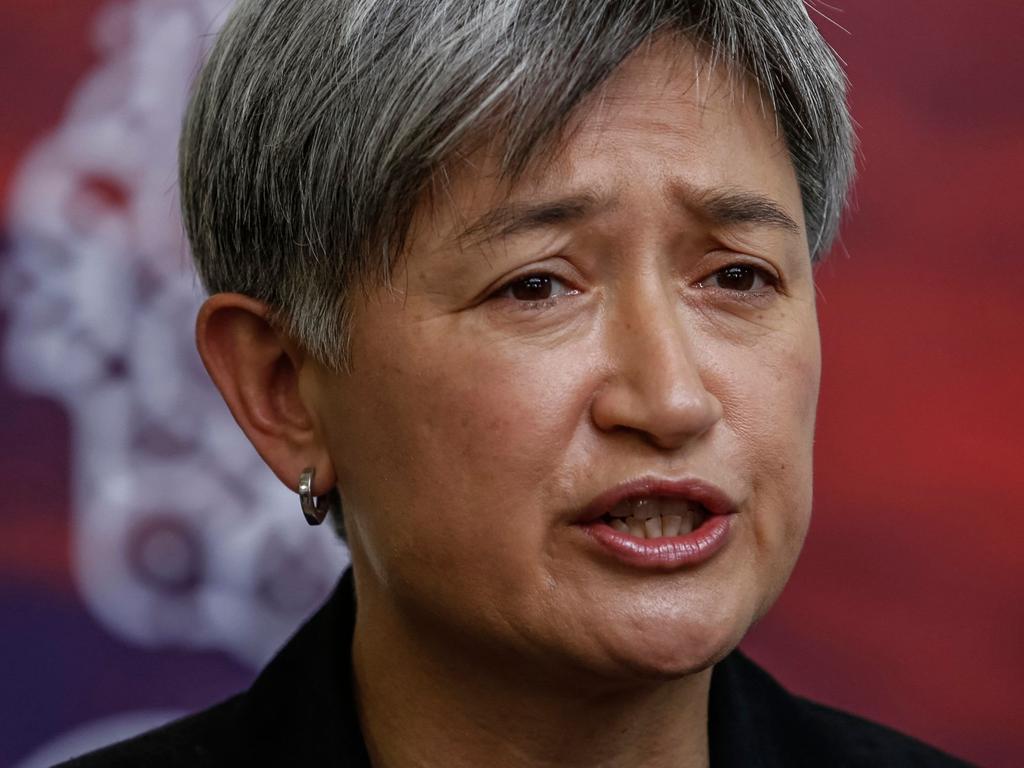




To join the conversation, please log in. Don't have an account? Register
Join the conversation, you are commenting as Logout